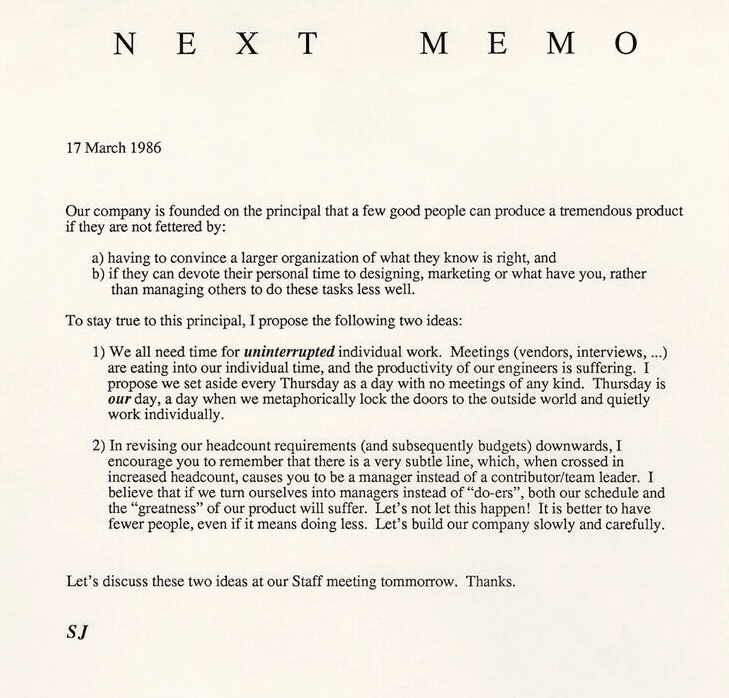
Amazing memo from Steve Jobs re: small teams, focus, and uninterrupted time. (cc-ing my fellow historical nugget junkies: @FoundersPodcast, @LibertyRPF, @jposhaughnessy ) https://t.co/QVKUJmziYw
Amazing memo from Steve Jobs re: small teams, focus, and uninterrupted time. (cc-ing my fellow historical nugget junkies: @FoundersPodcast, @LibertyRPF, @jposhaughnessy ) https://t.co/QVKUJmziYw

